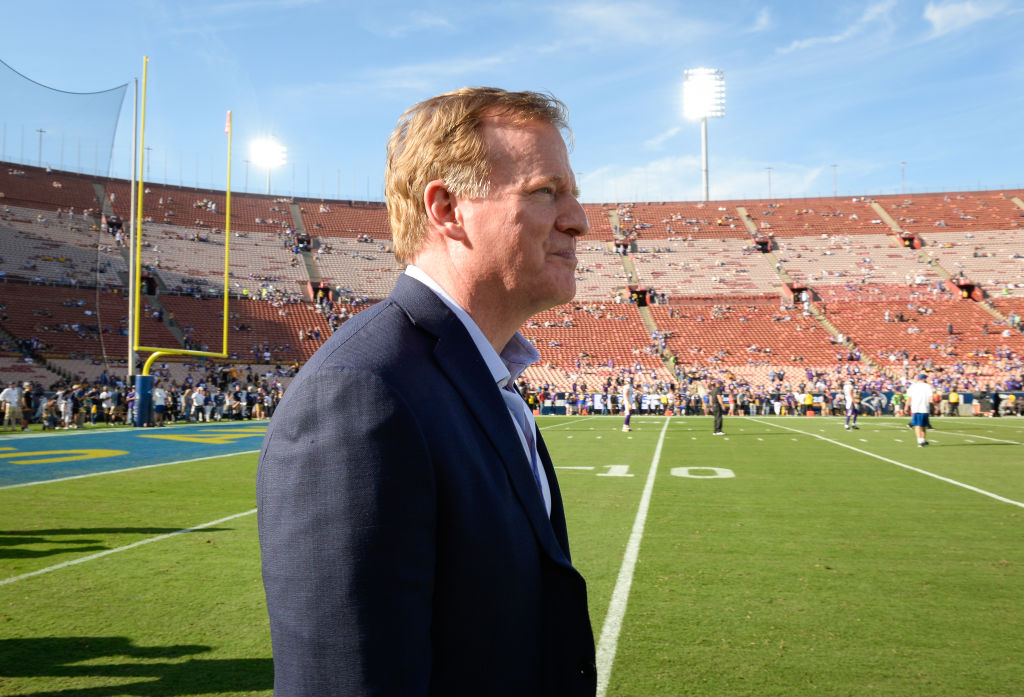NFL
Is Adopting a 17 Game NFL Schedule Inevitable?

Have you ever hoped that the NFL season was longer? It turns out that you might get your wish. Commissioner Roger Goodell recently revealed that the league and NFL Players Association have been in talks about increasing the length of the NFL schedule.
But, as with any business negotiations, there’s a decent amount of give and take involved. While nothing will be agreed upon overnight, is a 17-game NFL schedule an inevitability?
Changing the NFL schedule
In its earliest days, the NFL didn’t have a set schedule. Each team would play between eight and 16 games against a variety of opponents. While NFL teams would play each other, some would also face local amateur teams or independent professional squads on the gridiron. That would change, however, in 1933.
In the 1930s, the league set up its first divisional structure. The first set schedule came shortly after when, in 1935, each team played 12 games. That was quickly changed to an 11 game season before World War II cut another game from the schedule. The NFL moved to a 12 game schedule in 1947 and a 14 game season in 1961.
Starting in 1978, each NFL season—barring strikes or other disruptions—has consisted of 16 games. The bye week was reintroduced in 1990, giving us the 17-week schedule we’re all familiar with today. Times, however, could be changing; as history shows, the NFL schedule is far from an immutable object.
Adding more NFL games?
Over the summer, NFL owners reportedly proposed shifting the league to an 18-game schedule. Players, at least in theory, would only be able to appear in 16 contests, however. That idea didn’t catch on, however, leading to the most recent concept.
A 17-game schedule has emerged as a compromise, as it allows each team to play eight home games, eight road games, and one international game. The goal of the schedule change is clear. Each NFL game is a massive payday and the league and, in turn, its owners; the more game days in a season, the more money each franchise takes home.
According to Roger Goodell, the league has spoken to the Players Association about the possibilities lengthening the schedule. We’ve had very fruitful discussion on it, discussing the positives and negatives, and the changes to the game that we’ve made over the last 10 years, which I think are really important as it relates to the safety of the game and how we’re preparing and practicing, and training our players,” he said, via Ben Fischer of Sports Business Daily.
Is a 17-game schedule inevitable?
While the league seems ready to change the schedule, the players aren’t automatically on board. As the NFL’s star power, they’re hesitant about putting their bodies on the line to further pad the owners’ pockets.
“It’s ridiculous,” Chargers tight end Virgil Green told Sports Illustrated’s Jason Hirschhorn. “You’re talking about a team making the playoffs and they’re playing, what, 21 or 22 games at that point on top of preseason? That’s a lot of football games. This isn’t basketball. This isn’t baseball. This is a physical, brutal, violent sport.”
“You know, every time we have a game, that’s more wear and tear and opportunity for injury,” added fullback Derek Watt. “I’m sure it will help bring more money in, that’s for sure. But that’s not exactly in the best interest of player safety.”
If the league wants to lengthen the schedule, the NFL Players Association would surely demand something in return, whether it’s additional contract guarantees or the inclusion of a second bye week. No matter what the counteroffer is, expect a long, drawn-out negotiation. At some point, however, the owners will probably play ball; there’s just too much potential revenue to not work things out.











